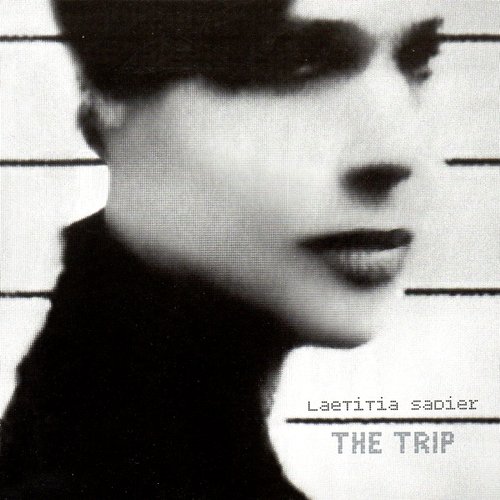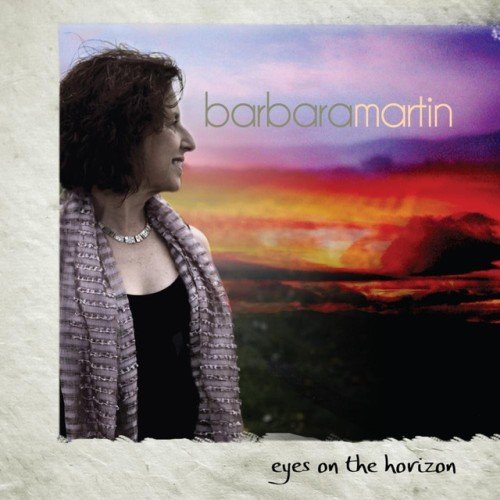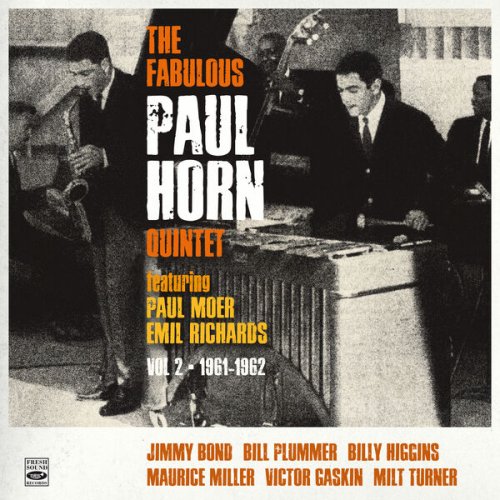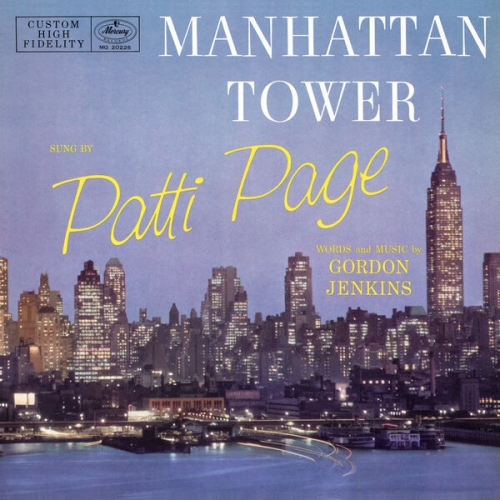Laetitia Sadier - The Trip (2010)

Artist: Laetitia Sadier
Title: The Trip
Year Of Release: 2010
Label: Drag City
Genre: Indie Pop, Singer-Songwriter
Quality: Mp3 320 / Flac (tracks, .cue, log)
Total Time: 34:25
Total Size: 84/206 Mb
WebSite: Album Preview
Tracklist:Title: The Trip
Year Of Release: 2010
Label: Drag City
Genre: Indie Pop, Singer-Songwriter
Quality: Mp3 320 / Flac (tracks, .cue, log)
Total Time: 34:25
Total Size: 84/206 Mb
WebSite: Album Preview
01. One Million Year Trip 5:03
02. Fluid Sand 4:34
03. Our Interests Are The Same 0:11
04. Natural Child 4:01
05. Statues Can Bend 2:57
06. By The Sea 3:45
07. Unfasten 0:25
08. Un Soir, Un Chien 4:50
09. Another Monster 2:49
10. Ceci Est Le Coeur 3:21
11. Summertime 1:59
12. Release, Open Your Little Earthling Hands 0:30
Line-up:
Laetitia Sadier - Vocals, Guitar
Julien Gasc - Bass, Acoustic Guitar, Piano Préparé, Keyboards, Incidental Noises, Vocals (tracks: 2, 4, 6, 10, 12)
Yuuki Matthews - Bass, Vocals (tracks: 1, 5, 8, 11)
Richard Swift - Drums, Keyboards, Subtle, Vocals (tracks: 1, 5, 8, 11)
Emma Mario - Drums, Percussion, Electronics, Vocals (tracks: 2, 4, 6, 10, 12)
April March - Additional Vocals (tracks: 2, 4, 6, 10, 12)
Rebecca Gates - Additional Vocals (tracks: 1, 5, 8, 11)
For almost 20 years, Laetitia Sadier has been fronting the dazzlingly retro-futuristic Stereolab, and she's also made room to indulge in a playful dream-pop side project, Monade. But The Trip, her first album under her own name, still feels like a coming-out party. Following Stereolab's recently announced hiatus (the band's upcoming Not Music was culled from the sessions for 2008's Chemical Chords) and the disbanding of Monade, Sadier is finally on her own. She didn't waste the opportunity: The Trip is breathtaking, a rich collection of torch songs and subtle, meandering melodies that clear away the distracting frenzy and Byzantine flourishes of her past groups to expose the humane beauty of her voice.
The Trip was produced by Emmanuel Mario, who recorded Monade's last album, and Richard Swift, the American lo-fi songsmith who makes his own quirky chamber-pop albums for Secretly Canadian. Both are smart matches for Sadier. Mario brings the wisdom that comes with familiarity, knowing how to capture the airy voluptuousness of Sadier's voice without indulging in the drama of its detachment. And Swift, who could make even the most self-serious artist sound whimsical, brings levity and fluidity to the collection, allowing its melodies to amble without Stereolab's laser-focus. Both producers capture Sadier's aesthetic through an appropriately sepia-toned lens, but also leave the palette clean enough so that the emotional weight of the tracks-- be they smoldering or melancholic-- comes from her voice. So, in lieu of bouncy pop melodies, cool, jazzy exotica, or cerebral genre experiments, The Trip is full of autumnal ballads. The instrumentation is graceful and measured, giving Sadier's willowy songs a cozy underpinning.
Sadier's lyrics and delivery, though a wonderful and essential part of Stereolab's aesthetic, have sometimes felt secondary, as if they are chasing bandleader Tim Gane's instrumental ideas. But The Trip is gentler and less melodically direct than her work with that band, so pointedly narrative (and disarmingly personal) lyrics can drive the hazy arrangement. Like on "One Million Year Trip", a haunting number that explicitly deals with her sister's suicide. The light krautrock pulse and gentle, ascending synth chords are muted and stay out of the way, and the tune's power comes from its vocal. "She went on a million-year trip and left everything behind-- her skin, her hair," Sadier sings, "She has a long way to travel, so I will open my heart, and let the pain run along as there is no point in holding on."
Though notably subdued and tinged with sadness, the album isn't a downer. There are a few brisk moments to the dreamy collection-- most notably Sadier's striking version of Les Rita Mitsouko's louche disco rocker "Un Soir, Un Chien", which toys with the playfully mechanical synthesized textures of her former band. She even manages to turn Wendy & Bonnie's somber folk ballad "By the Sea" into a sexy, propulsive swirl of regret.
It's not that Sadier sounds fundamentally different here than she does in Stereolab-- her voice still oozes ethereality and sophistication. But The Trip feels like an expansion into new territory. Without Gane and his spacey-cool affectations, Sadier is free to revel in warm, rich balladry. You sense an artist known in part for her detachment leaning in close to share a secret.
The Trip was produced by Emmanuel Mario, who recorded Monade's last album, and Richard Swift, the American lo-fi songsmith who makes his own quirky chamber-pop albums for Secretly Canadian. Both are smart matches for Sadier. Mario brings the wisdom that comes with familiarity, knowing how to capture the airy voluptuousness of Sadier's voice without indulging in the drama of its detachment. And Swift, who could make even the most self-serious artist sound whimsical, brings levity and fluidity to the collection, allowing its melodies to amble without Stereolab's laser-focus. Both producers capture Sadier's aesthetic through an appropriately sepia-toned lens, but also leave the palette clean enough so that the emotional weight of the tracks-- be they smoldering or melancholic-- comes from her voice. So, in lieu of bouncy pop melodies, cool, jazzy exotica, or cerebral genre experiments, The Trip is full of autumnal ballads. The instrumentation is graceful and measured, giving Sadier's willowy songs a cozy underpinning.
Sadier's lyrics and delivery, though a wonderful and essential part of Stereolab's aesthetic, have sometimes felt secondary, as if they are chasing bandleader Tim Gane's instrumental ideas. But The Trip is gentler and less melodically direct than her work with that band, so pointedly narrative (and disarmingly personal) lyrics can drive the hazy arrangement. Like on "One Million Year Trip", a haunting number that explicitly deals with her sister's suicide. The light krautrock pulse and gentle, ascending synth chords are muted and stay out of the way, and the tune's power comes from its vocal. "She went on a million-year trip and left everything behind-- her skin, her hair," Sadier sings, "She has a long way to travel, so I will open my heart, and let the pain run along as there is no point in holding on."
Though notably subdued and tinged with sadness, the album isn't a downer. There are a few brisk moments to the dreamy collection-- most notably Sadier's striking version of Les Rita Mitsouko's louche disco rocker "Un Soir, Un Chien", which toys with the playfully mechanical synthesized textures of her former band. She even manages to turn Wendy & Bonnie's somber folk ballad "By the Sea" into a sexy, propulsive swirl of regret.
It's not that Sadier sounds fundamentally different here than she does in Stereolab-- her voice still oozes ethereality and sophistication. But The Trip feels like an expansion into new territory. Without Gane and his spacey-cool affectations, Sadier is free to revel in warm, rich balladry. You sense an artist known in part for her detachment leaning in close to share a secret.






![Rick Braun - Intimate Secrets (1992) [CDRip] Rick Braun - Intimate Secrets (1992) [CDRip]](https://www.dibpic.com/uploads/posts/2026-03/1772427179_5.jpg)

